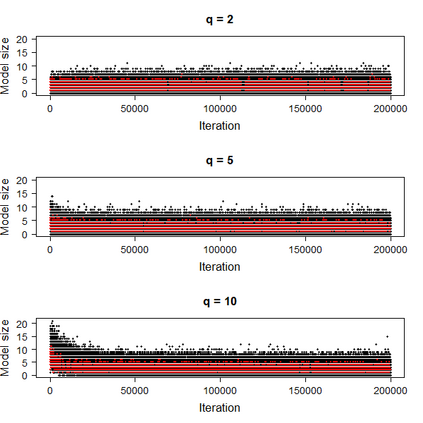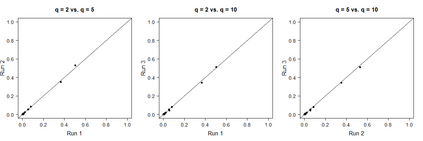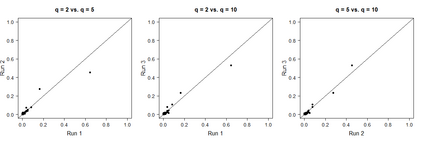A simple and efficient adaptive Markov Chain Monte Carlo (MCMC) method, called the Metropolized Adaptive Subspace (MAdaSub) algorithm, is proposed for sampling from high-dimensional posterior model distributions in Bayesian variable selection. The MAdaSub algorithm is based on an independent Metropolis-Hastings sampler, where the individual proposal probabilities of the explanatory variables are updated after each iteration using a form of Bayesian adaptive learning, in a way that they finally converge to the respective covariates' posterior inclusion probabilities. We prove the ergodicity of the algorithm and present a parallel version of MAdaSub with an adaptation scheme for the proposal probabilities based on the combination of information from multiple chains. The effectiveness of the algorithm is demonstrated via various simulated and real data examples, including a high-dimensional problem with more than 20,000 covariates.
翻译:提议采用一个简单而高效的适应性Markov链条蒙特卡洛(MCMC)方法,称为“Metroporid Aditive Subspace (MAdaSub) 算法”,从贝叶西亚变量选择的高维后方模型分布中取样。MAdaSub算法基于一个独立的大都会-哈斯廷取样器,在使用一种巴伊西亚适应性学习形式进行每次迭代后,对解释变量的个别建议概率进行更新,最终将之与相关共变后方的相容性合并。我们证明了算法的遗传性,并展示了MAdaSub的平行版本,同时根据多链信息组合对建议概率作了调整。通过各种模拟和真实数据实例,包括20,000多个共变数的高维度问题,证明了算法的有效性。







